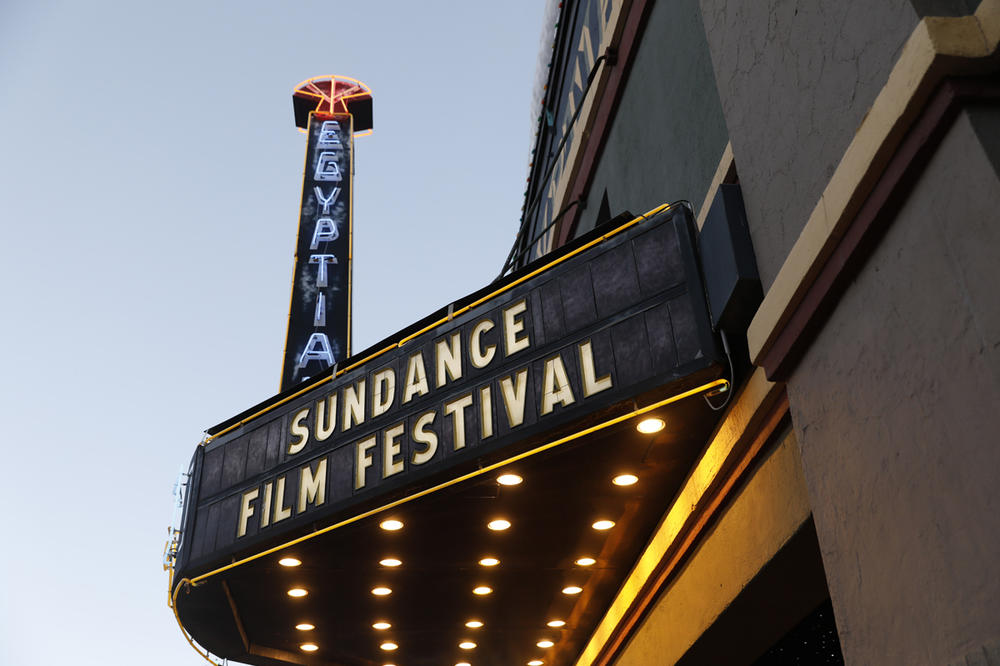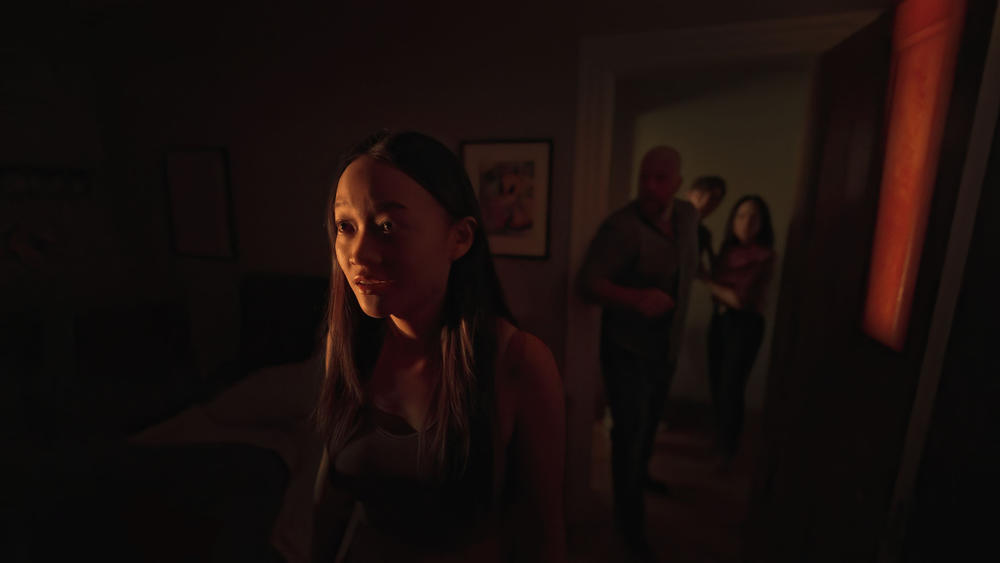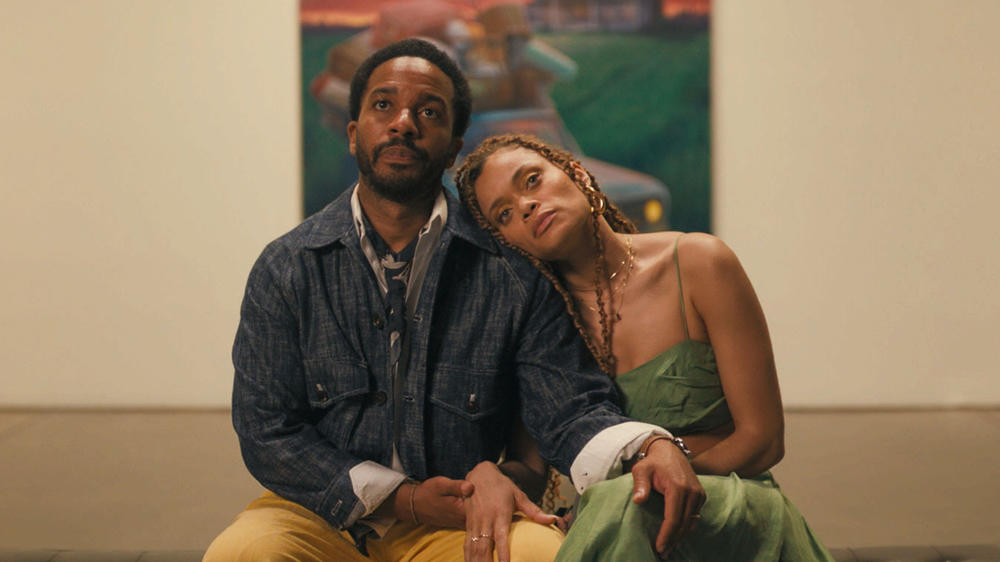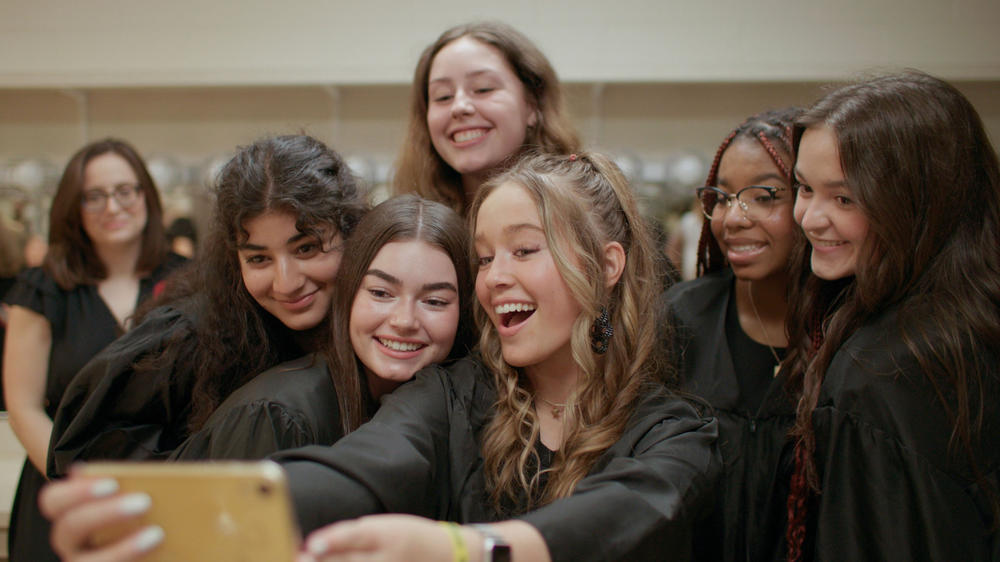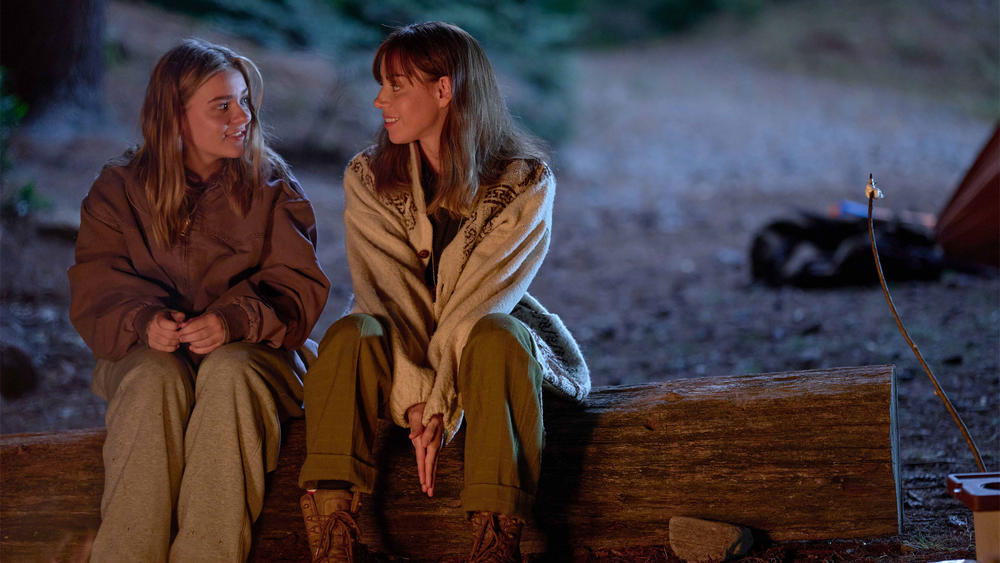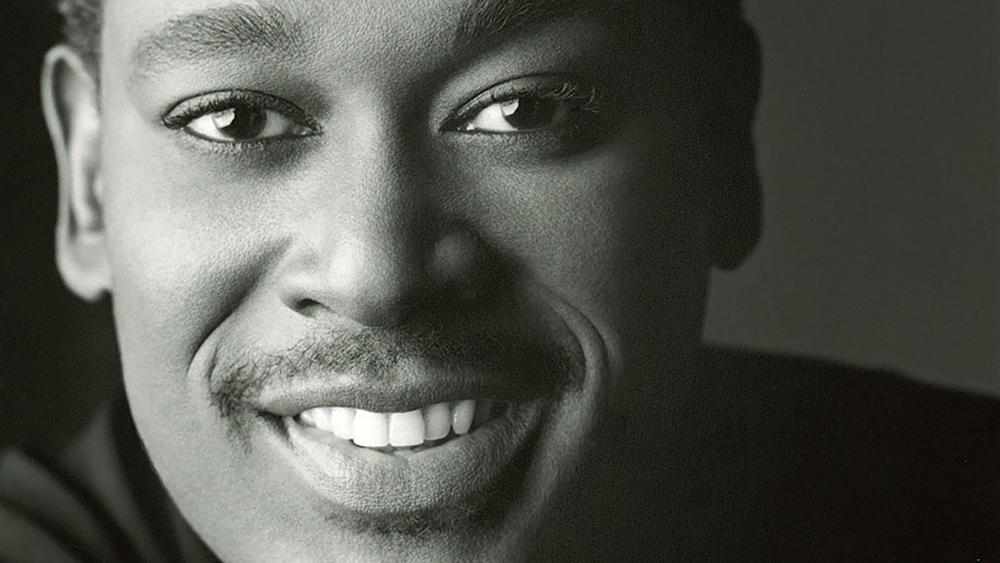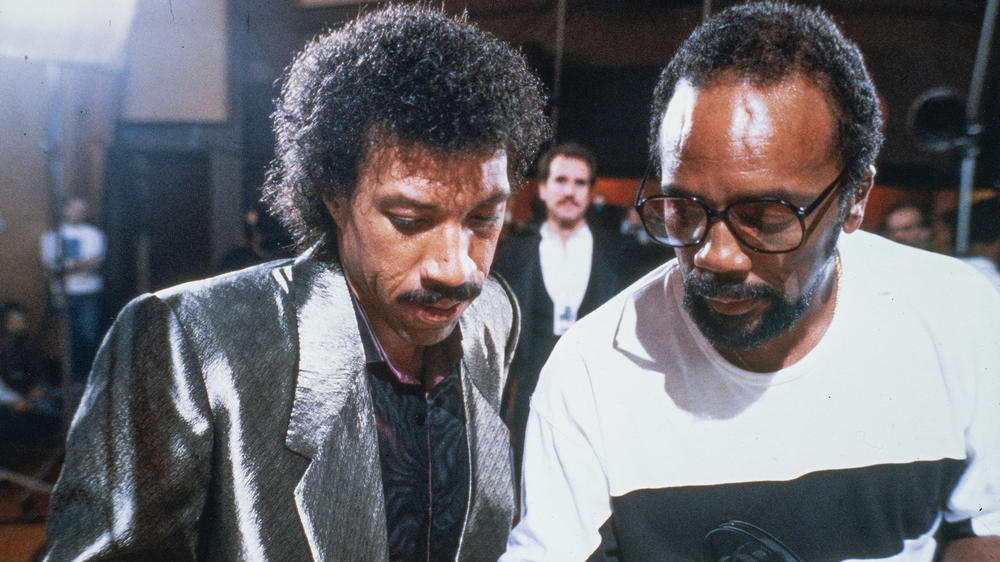Section Branding
Header Content
Sundance Festival breakthroughs of 2024: Here are 14 new films to look forward to
Primary Content
The Sundance Film Festival celebrated its 40th anniversary this year and the vibes in Park City, Utah were understandably nostalgic – sprinkled throughout the 10-day event were special screenings of past Sundance breakouts, including Mississippi Masala, Napoleon Dynamite, and Pariah.
But first and foremost, the fest was all about premiering a generous slate of new films by both emerging and established filmmakers, and the options were vast. I was in attendance for much of the festival and had the chance to sample just over 20 features in-person and online, stories ranging from intimate family dramas to bold political statements to charming coming-of-age comedies.
The festival concludes Sunday, but the awards were announced on Friday; among the big winners were the debut feature film In the Summers by Alessandra Lacorazza about the volatile relationship between a father and his daughters which won the U.S. Grand Jury Prize and the Ukraine war documentary Porcelain War which won the parallel U.S. Grand Jury documentary prize.
Some films arrived at the festival with distribution deals firmly in place, but at the time of writing, many deals and potential distribution dates are still being worked out. As is the case every year, the buzz around certain films means we all will be seeing those in streaming or theatrical form at some undetermined point in the future.
Here are some of my favorites from this year.
What the ...?
There's usually at least one movie at Sundance every year that makes you go, What the hell did I just watch??? This year, I saw two: Steven Soderbergh's immersive ghost tale Presence and Aaron Schimberg's agitating psychological drama A Different Man.
Soderbergh, ever the experimental filmmaker, collaborated with screenwriter David Koepp to craft the story of a haunted house told entirely from the ghost's point of view after a new family – which has recently been rocked by tragedy – moves in. (Lucy Liu and Chris Sullivan play the parents, newcomers Callina Liang and Eddy Maday are their bickering children.) The less you know of the details going in, the better. But what can be said for sure is that it's an experience unlike any other, putting the viewer in the discomfiting position of watching this family's dramas (and traumas) play out unfiltered. The technical feats Soderbergh pulls off with the camera and editing will be studied for years to come, but the narrative themes and storytelling choices demand equal dissection. Following its Sundance premiere, Presence sold to distributor Neon.
Schimberg's movie is even weirder, and to be honest, I'm still not sure whether I think it's brilliant or much ado amounting to ... not much. But I'm still thinking about it days later, and it renders one of Sebastian Stan's best performances to date. He plays Edward, an aspiring actor limited by a genetic facial mutation; after he undergoes reconstructive surgery to alter his appearance, he's confronted with the consequence of this drastic decision in the form of Oswald (Adam Pearson), a jovial, beloved man who has the same medical condition Edward once had. (In real life, Pearson has neurofibromatosis.) It's brutal, unsettling, and a lot. A Different Man came to the festival with a distribution deal already in place with A24, so expect to be baffled by it soon enough.
Familial pangs
Some of the biggest hits to come out of Sundance tend to be emotional family dramas (see Little Miss Sunshine, CODA). One of my favorites this year is Exhibiting Forgiveness, the feature debut of artist Titus Kaphar, starring André Holland as Tarrell, an acclaimed painter who harbors some unresolved childhood trauma. When his father La'Ron (John Earl Jelks) suddenly reappears in his life, Tarrell's finally forced to deal with years' worth of accumulated rage and hurt. What starts off feeling like your standard-issue indie melodrama ultimately emerges as something much deeper, more fascinating, and refreshingly unconventional. Holland and Jelks are excellent here, buoyed by strong supporting performances from Aunjanue Ellis-Taylor and Andra Day.
A Real Pain, Jesse Eisenberg's second feature behind the camera, was also a pleasant surprise; he and Kieran Culkin play estranged cousins who embark on a Holocaust tour in Poland in the wake of the death of their grandmother. It strikes the right balance of darkness, levity, and grief – the awkward dynamics within the tour group are especially notable – and Culkin is pretty perfect playing a live wire type, who's somehow both a compassionate empath and terribly uncouth. A Real Pain left the fest with a reported $10 million Searchlight deal.
And then there's Brief History of a Family, the feature debut of Jianjie Lin, which engages in suspenseful, thoughtful ways with the ramifications of China's one-child policy. In it, a middle-class family of three is thrown for a loop when the son's new friend slowly becomes an integral part of the household. Secrets, lies, envy, and unrealized yearnings unravel in this moody thriller, which is being distributed by Films Boutique.
Fight the power (or try to, anyway)
Stories about individuals contending with oppression were all over the festival this year, and quite a few stuck out for me. Girls State, a sort-of sequel to the 2020 Sundance hit documentary (and Grand Jury Prize-winner) Boys State, follows teen girls in Missouri who are participating in the annual week-long exercise of building their own democratic government. A couple of unique factors make Jesse Moss and Amanda McBaine's film, which is coming to Apple TV+ in April, notable: For one, its filming just so happened to coincide with the leak of the draft of the Supreme Court's majority opinion on the right to abortion. It also depicts the first time both Boys and Girls State were hosted on the same campus – which makes the gender disparities between the two organizations impossible for the girls to ignore.
Another doc, Jazmin Renée Jones' Seeking Mavis Beacon, is part investigation and part character study. Alongside Gen Z video artist Olivia McKayla Ross, Jones attempts to find Renée L'Espérance, the Black model who served as the face of the '80s computer program Mavis Beacon Teaches Typing. The film asks complex questions about how Blackness is used and distorted through technology, as well as what it means to dance around ethical boundaries while excavating history.
And a couple from the other side of the world: Kneecap, a loosely autobiographical origin story of the Irish hip-hop group Kneecap, bursts with verve, bite, and righteous rage that calls to mind early Spike Lee. (They insist on speaking and rapping in Irish to preserve the dying language, and in defiance of Britain.) The dynamic trio – Mo Chara, Móglaí Bap, and DJ Próvaí – play versions of themselves alongside Michael Fassbender as Bap's revolutionary dad.
Then there's Soundtrack to a Coup d'Etat, Johan Grimonprez's audacious and musical documentary deconstructing the confluence of events and political collusion that led to the assassination of Congolese prime minister Patrice Lumumba. This includes how prominent Black jazz artists were deployed by the U.S. as ambassadors to unwittingly distract from the country's nefarious behind-the-scenes dealings. The filmmaker's stylistic approach is riveting, wielding the rhythmic language of Louis Armstrong, Nina Simone, Max Roach, and other jazz greats alongside the callous recounting of gleeful mercenaries and world leaders. Grimonprez and his editor Rik Chaubet also pull abundantly from an array of texts, archival footage and interviews, playing liberally with sound and imagery. There's so much information to take in, but to their credit, it never becomes so overwhelming as to lose focus.
Adolescence is hard
Another staple of Sundance is the quirky coming-of-age movie, and My Old Ass and Dìdi deliver plenty of humor and heart.
The former is a high-concept comedy about Elliott, a queer Canadian teen (the winsome Maisy Stella) who can't wait to leave her family's cranberry farm behind for college. One night, she and her best friends decide to experiment with mushrooms in the woods, and during her psychedelic trip she meets her older self, played by the always wonderful Aubrey Plaza. Filmmaker Megan Park's second feature is just weird and charming enough to work as an ode to the sweet dumbness of youth and the sage wisdom of age. It was purchased at the festival for a reported $15 million by Amazon MGM for a theatrical release followed by an eventual streaming debut on Amazon Prime.
The latter, directed by Sean Wang, takes us back to 2008 – AOL Instant messenger, the early days of Facebook, the waning days of Myspace – through the eyes of Dìdi, aka Chris (Izaac Wang), a 13-year-old Taiwanese American boy. It's set during the summer before he transitions to high school, and as one might expect, it's both cringey and relatable in how it depicts that awkward period where friendships are tested, hormones rage, and all parents do is nag, nag, nag (or so we kids think). It's familiar territory, but the performances and attention to period-specific detail (especially as it pertains to the teen lingo) make for a great watch.
Music is healing
Finally, two music documentaries tapped into the emotional power of some of our greatest pop icons.
Dawn Porter's Luther: Never Too Much is a celebration of the legendary singer Luther Vandross, chronicling his early career as a member of the group Listen My Brother to his final commercially successful comeback with Dance with My Father before his death at the age of 54. There's lots of great archival footage here, including of Vandross working on musical arrangements for David Bowie's "Fascination." Many of Vandross' collaborators, including Dionne Warwick and Richard Marx, sing his praises and – to an extent – discuss his public struggles with his ever-fluctuating weight and speculation around his sexuality. The doc sadly doesn't go too deep on the latter issue for reasons that are explained through his close friends, only partly satisfyingly; nevertheless, by the end of the film it's impossible not to be moved, quite possibly to tears.
Overlapping a little with the era of Vandross is Bao Nguyen's The Greatest Night in Pop, which drops on Netflix quite soon – Jan. 29. The "greatest night" in question is the herculean undertaking of the star-studded recording of "We Are the World," in the hours immediately following the 1985 American Music Awards. As far as Netflix docs go, this is one of the more entertaining ones; Lionel Richie is an executive producer and he's all over it, telling funny stories about writing the song with Michael Jackson as well as the pressure to deflate all the competing egos in the room that evening.
Does it treat this charity single as if it was the second coming of Jesus? Kind of! Are there some noticeably absent talking heads? Yup! (No Stevie, Diana, or Quincy, though we do get lots of Kenny Loggins soundbites.) Do we ever find out what the heck Dan Aykroyd was doing there? Not really! No matter – this is a breezy, thoroughly enjoyable nostalgia trip.
Copyright 2024 NPR. To see more, visit https://www.npr.org.
